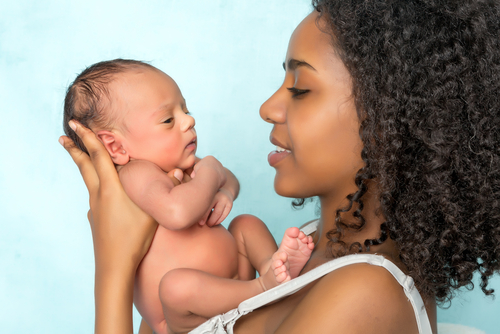The Centers for Disease Control and Prevention (CDC) released a report this month on maternal mortality in the United States, and it’s truly shocking: Deaths related to pregnancy and childbirth are steadily increasing in our country, with deaths of African-American women much more common than of whites and Hispanics.
The abortion lobby has seized upon these facts to propose abortion as a life-saving procedure, thereby showing a fine disdain for the very definition of abortion: “The termination of a pregnancy … accompanied by … the death of the embryo or fetus.”
Besides the irrationality of claiming the procedure saves lives, a further claim is made that institutional racism prevents black women from accessing this “life-saving” procedure, and that their access to abortion must be increased.
Actually, it is the abortion industry that is racist.
What expectant black mothers need is help addressing the particular social and medical challenges they face while trying to bring their children into the world — not the “final solution” of ending the lives of their unborn sons and daughters.
Abortion is already too prevalent in the black community, and it has been said, with justice, that the most dangerous place for an African-American is in the womb — not the labor and delivery suite.
According to the CDC report, black maternal mortality, defined as the death of a woman during pregnancy or soon after from causes related to the pregnancy itself, is 42.8 per 100,000 live births.
To put that in perspective, the average rate in developed countries for women of all races is 17, and for white American women it is 13. In the U.S., approximately 700 women die each year from complications of pregnancy, with more than a third of these deaths caused by cardiovascular conditions before and after delivery.
The CDC estimates that fully 60 percent of maternal deaths are preventable, meaning that death could have been averted by “one or more reasonable changes to patient, community, provider, health facility, and/or system factors.”
Each of these factors, for various reasons, affect black women disproportionately, leading to the racial disparity in maternal mortality — and for each of them there are possible solutions that (unlike abortion) can improve outcomes for the mother and welcome her baby to the world.
The first factor — patient — refers to the medical condition and social situation of the expectant mother. In both of these categories, black women are at a distinct disadvantage compared to their white counterparts.
Cardiovascular conditions like stroke and cardiomyopathy (weakening of the heart muscles) are more common in black women, in turn due at least in part by higher incidences of obesity, high blood pressure and diabetes.
Better management of black women’s chronic health problems through educational campaigns and improved access to preventive and primary care could mitigate pregnancy complications. Something as simple as increasing the number of post-natal medical visits and extending them through the first year of life of the baby could save many lives, as black women are more likely to die of undiagnosed cardiomyopathy after the birth.
Another patient factor to consider is “weathering.” This is the rather new theory that black women suffer higher levels of chronic stress than white women, and that this causes early onset of chronic diseases. Although proponents of the weathering theory tend to concentrate solely on racism and how this may increase stress over a lifetime, other minorities that experience similar levels of racism do not exhibit the same effects.
Instead, it may be that the implosion of black marriage — about 80 percent of black children are born to unmarried mothers — results in higher levels of chronic stress. Growing up without a father in a subculture marked through and through with the dysfunction that is part and parcel of male irresponsibility may result in weathering.
This includes, of course, endemically violent neighborhoods. Also, a pregnant woman or one with an infant who doesn’t have the emotional and material support of a husband juggles all of life’s complications, including sleeplessness and illness, by herself, and what could be more stressful?
The African American pregnancy-related mortality rate is certainly a disgrace to our country. Any change, whether social, medical, or community, that can be made to try to give black women better outcomes deserves a country-wide effort. But what can’t be allowed to happen is that the abortion industry’s “solution” to maternal mortality should be adopted.
If pregnancy is deadly for 42 out of 100,000 pregnant black women, abortion is deadly for 100,000 out of 100,000 aborted black babies. These children deserve to be welcomed into the world, just as their mothers deserve to be helped to bear them safely.
Dr. Grazie Pozo Christie grew up in Guadalajara, Mexico, coming to the U.S. at the age of 11. She has written for USA Today, National Review, Washington Post, and The New York Times, and has appeared on CNN, Telemundo, Fox News, and EWTN. Her Angelus column, “With Grace,” earned a Catholic Press Association award for “Best Regular Column: Family Life” in 2018. She practices radiology in Miami, Florida, where she lives with her husband and five children.
Start your day with Always Forward, our award-winning e-newsletter. Get this smart, handpicked selection of the day’s top news, analysis, and opinion, delivered to your inbox. Sign up absolutely free today!

